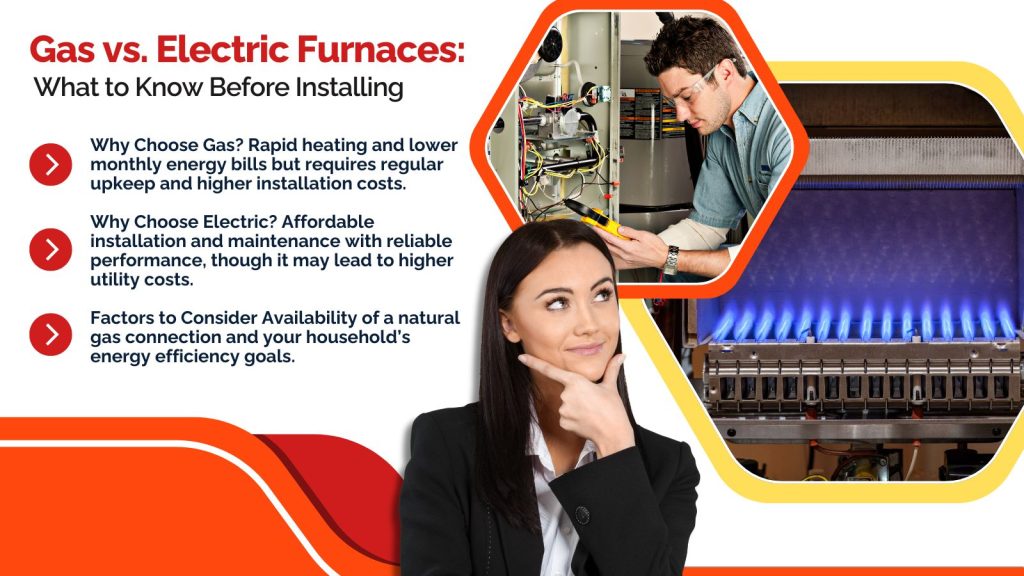If it’s time to invest in a new furnace, you want to make the right decision. After all, whatever system you install now will be heating your home for the next 10 to 15 years. You can keep reading to learn about the key differences between gas and electric furnaces so that you can pick the best system for your home and family.
If you have additional questions, we can answer them when you schedule your furnace installation in Salem. We will complete an in-home assessment to review the precise details of the installation for your chosen system, so you know exactly what to expect.

Pros and Cons of a Gas Furnace
Gas furnaces are often considered the premier choice for home heating. This is because gas furnaces heat up very quickly thanks to the combustion that happens when the pilot light ignites and gas filters into the heat pump chamber.
They are also known to be highly energy efficient for the same reason. Heating up quickly means that a gas furnace does not have to stay on for as long or consume as much energy for heating your home.
You do want to think about the fact that gas furnaces cost more to install because they are more intricate systems. They have unique needs since they have to remain completely airtight because of using gas to burn and create heat. They also have higher maintenance needs thanks to the stress and strain of the combustion process.
Gas furnaces can take on more strain and need more maintenance steps and repairs compared to an electric furnace. The costs can even out when you consider that you are saving on paying less toward your energy bills for heating.
Pros and Cons of an Electric Furnace
Electric furnaces are wonderful because they cost less to install, saving you money on that initial investment. Electric furnaces are also a little bit simpler to maintain compared to a gas furnace. You still need to plan on scheduling an annual maintenance for the system, but there is a good chance that we won’t have to complete as many maintenance steps as we would have to if you were maintaining a gas furnace.
Electric furnaces are slower to heat up. Once they do heat up and reach your chosen indoor air temperature, the system will be perfectly capable of maintaining that temperature. However, if you ever turn your furnace off completely or set the temperature on the thermostat significantly lower, it may take longer to heat up compared to a gas furnace.
Because of the slower process of heating, electric furnaces can cost more for month-to-month operation. If you are concerned about higher energy costs for heating your home, it’s a good idea to invest in a high efficiency model that uses less energy overall for heating compared to a standard electric furnace.
Choosing between a gas or electric furnace really comes down to personal preference. Electric furnaces can be installed in nearly any home, but gas furnaces do require a natural gas connection, so that may be a factor to consider.
Your comfort is our business! Comfort Flow Heating serves all of Oregon, so contact our team today to schedule your appointment.


